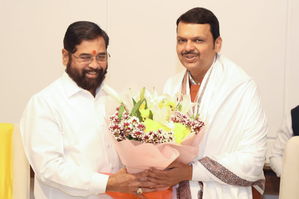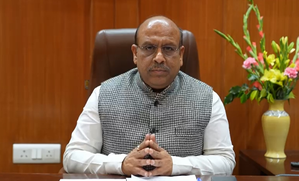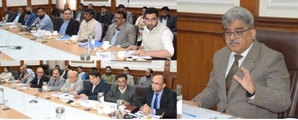From election to performance — Understanding the role of Speaker in the Lok Sabha
New Delhi, June 24 (IANS) With the 18th Lok Sabha holding its inaugural session from June 24 to July 3, the House is likely to elect its new Speaker on June 26.
Meanwhile, Bharatiya Janata Party MP Bhartruhari Mahtab has been appointed the ‘pro-tem Speaker’ of the Lok Sabha. President Droupadi Murmu administered the oath of office to him in the presence of all the newly-elected members of the Lower House.
Mahtab will serve as the ‘pro-tem Speaker’ till June 26, when the new Speaker will be elected.
The rules for electing the Speaker are laid down in Article 93 of the Constitution. All the members of the Lok Sabha will choose the Speaker by casting their votes in a secret ballot.
The Speaker is elected by a majority, which means more than half of the members present in the House have to vote for a candidate to become the Speaker.
Since Independence, all the Lok Sabha Speakers have been elected unopposed.
The election of the Deputy Speaker also follows the same rules, except the date is fixed by the newly-elected Speaker.
The Deputy Speaker’s post has been retained by the Opposition since 1991. However, this time, it might go to one of the BJP-led NDA allies, the TDP or the JD(U).
Role of the Speaker:
* Represents the authority of the entire Lok Sabha while ensuring that it operates as per the rules of the Parliament and democracy.
* Presides over the sessions, maintaining discipline and decorum, deciding who speaks, and the order of proceedings.
* Maintains orderly conduct and discipline by applying the rules of the procedure of the Lok Sabha.
* Has the power to discipline (imposing penalties or sanctions or sometimes removing from the position) members of the House over inappropriate behaviour.
* Ensures fair participation in the House proceedings and protects the rights of the members.
* Participates in discussions but only votes if there is a tie.
* Adjourns or suspends the meeting if enough MPs are not present.
* Verifies important bills and handles joint meetings between the upper and the lower houses of the Parliament.
* Licenses Money Bills and can make decisions on other finance-related bills.
* Must be transparent and fair, regardless of their political party.
–IANS
sd/bg




